Online Marketing
Online Marketing
Online Marketing, In today’s interconnected world, online marketing has become a cornerstone for business success. From small startups to multinational corporations, every organization leverages online platforms to reach their target audience, build brand awareness, and drive sales. In this blog post, we’ll delve into the nuances of online marketing, its benefits, strategies, tools, and the analytical insights that showcase its undeniable impact.
What is Online Marketing?
Online marketing, also known as digital marketing, refers to the use of internet-based channels to promote products and services. Unlike traditional marketing methods, online marketing offers a dynamic, interactive, and cost-effective way to engage with potential customers. Its versatility and adaptability make it an essential strategy for businesses aiming to thrive in today’s digital landscape.
Key components of online marketing include:
Search Engine Optimization (SEO)
SEO involves improving a website’s visibility on search engines like Google. By optimizing content and using targeted keywords, businesses can attract organic traffic and rank higher on search results pages. For example, focusing on long-tail keywords often results in higher conversion rates as they cater to specific user intent.
Social Media Marketing (SMM)
Social media platforms like Facebook, Instagram, LinkedIn, and Twitter provide businesses with an avenue to connect directly with their audience. Through engaging posts, stories, and advertisements, companies can foster relationships, boost brand loyalty, and drive traffic to their websites.
Pay-Per-Click (PPC) Advertising
PPC is a targeted advertising method where businesses pay for each click on their ads. Platforms such as Google Ads and social media offer sophisticated targeting options, allowing advertisers to reach specific demographics based on age, location, interests, and behavior. This strategy delivers quick results and measurable ROI.
Content Marketing
Content marketing involves crafting and distributing meaningful, relevant, and consistent content to engage and retain a well-defined target audience. Blog posts, videos, infographics, and eBooks are examples of content that can position a brand as an industry authority while addressing customer needs.
Email Marketing
Email marketing continues to be one of the most powerful methods for nurturing leads and building lasting customer relationships. Personalized email campaigns, newsletters, and special offers keep customers engaged and encourage repeat business.
The Importance of Online Marketing
In an era where billions of people have internet access, online marketing has revolutionized the way businesses connect with their audience. It offers unparalleled opportunities to grow, engage, and succeed in a highly competitive landscape. Here’s why online marketing is essential for businesses today:
Expand Reach
The internet transcends geographical boundaries, enabling businesses to access global audiences across different demographics. Whether you’re a small local shop or a multinational corporation, online marketing allows you to connect with potential customers anywhere in the world. For example, a targeted social media campaign can showcase your products to users across continents within minutes.
Cost-Effectiveness
Online marketing often delivers better ROI compared to traditional advertising methods like print, radio, or television. Strategies like pay-per-click (PPC) advertising ensure you only pay for actual engagement, while email marketing offers a low-cost way to nurture customer relationships. Even small businesses with limited budgets can leverage digital channels effectively.
Real-Time Interaction
Unlike traditional marketing, which is often one-sided, online marketing facilitates real-time interaction. Businesses can engage with customers instantly via social media, chatbots, and live chat features on websites. This immediate communication builds trust, addresses concerns quickly, and enhances customer satisfaction.
Measurable Results
One of the standout benefits of online marketing is its measurability. Analytical tools like Google Analytics, SEMrush, and social media insights provide detailed reports on campaign performance. Key metrics such as website traffic, conversion rates, and customer engagement help businesses refine their strategies and achieve better outcomes.
Personalization
Advanced tools and algorithms allow businesses to deliver tailored experiences to individual users. Personalized email campaigns, product recommendations, and retargeting ads make customers feel valued and understood. This level of customization boosts loyalty and increases the likelihood of conversions.
Why Businesses Can’t Ignore Online Marketing
- Competitive Advantage: Companies investing in online marketing often outperform those relying solely on traditional methods. Staying relevant in today’s digital-first world requires embracing these tools.
- Flexibility and Adaptability: Digital marketing campaigns can be adjusted in real-time based on performance data. This flexibility ensures that resources are allocated efficiently, maximizing effectiveness.
- Brand Awareness and Authority: Online marketing strategies like content marketing and SEO help establish your business as an authority in your industry. High-quality blogs, videos, and infographics not only attract potential customers but also foster credibility.
- Engagement Across Platforms: With billions of users on social media platforms, businesses have the chance to engage with their audience on a personal level. Comments, likes, shares, and direct messages create meaningful interactions that drive brand loyalty.
Key Strategies for Online Marketing Success
In today’s digital era, online marketing strategies play a pivotal role in shaping a business’s success. Implementing effective techniques ensures that your brand stands out amidst intense competition. Below are key strategies to achieve online marketing success:
1. Building a Strong Online Presence
A strong online presence is fundamental to any marketing strategy. Your website acts as your digital storefront—the first impression potential customers have of your brand. To maximize its effectiveness, ensure:
- Mobile-Friendly and Responsive Design: With a significant portion of web traffic coming from mobile devices, your website must adapt seamlessly to various screen sizes.
- SEO-Optimized Content: Use relevant keywords strategically throughout your site to improve search engine rankings. Optimize meta titles, descriptions, and headers to enhance visibility.
- Fast Loading Speed: A slow-loading website can deter visitors. Tools like Google PageSpeed Insights can help you identify and fix issues.
- User-Friendly Navigation: Simplify the user journey by creating intuitive menus and clear calls-to-action (CTAs) that guide visitors toward desired actions.
2. Leveraging Search Engine Optimization (SEO)
SEO is essential for driving organic traffic. A well-executed SEO strategy can significantly improve your website’s visibility on search engines like Google. Key focus areas include:
- Keyword Research: Identify high-performing and long-tail keywords relevant to your industry.
- On-Page Optimization: Optimize on-page elements such as meta tags, image alt texts, and URLs.
- High-Quality Content: Publish valuable, informative, and engaging content that addresses user queries and keeps them returning.
- Backlink Building: Acquire links from reputable websites to boost your site’s authority and credibility.
3. Harnessing the Power of Social Media
Social media platforms are indispensable for online marketing. They provide an avenue for direct engagement with your audience and foster brand loyalty. To maximize the impact of social media:
- Create a Content Calendar: Plan posts around themes, campaigns, and events to ensure consistent engagement.
- Use Analytics Tools: Platforms like Facebook Insights, Instagram Analytics, and LinkedIn Analytics offer valuable data to refine your strategy.
- Engage with Followers: Respond to comments, messages, and reviews promptly to build trust and foster community.
- Leverage Paid Ads: Social media ads enable precise targeting based on demographics, interests, and behavior.
4. Utilizing Paid Advertising
Paid advertising is a powerful way to achieve immediate visibility and results. Pay-per-click (PPC) campaigns, in particular, offer excellent ROI. Key benefits include:
- Targeted Advertising: Platforms like Google Ads allow you to target specific keywords and audiences.
- Cost Control: Set budgets to ensure campaigns stay within financial limits.
- Performance Metrics: Track ad performance to measure click-through rates (CTR), cost-per-click (CPC), and conversion rates.
5. Email Marketing for Retention
Email marketing continues to be a highly effective strategy for cultivating leads and fostering strong customer relationships. To make the most of email campaigns:
- Build a Quality Email List: Use sign-up forms on your website and social media to gather subscriber information.
- Segment Your Audience: Group subscribers based on preferences, purchase history, or demographics for targeted messaging.
- Personalize Emails: Tailor subject lines and content to resonate with individual recipients.
- Automate Campaigns: Use tools like Mailchimp, HubSpot, or Constant Contact to streamline email marketing workflows.
6. Content Marketing
Content marketing is the backbone of online marketing. By providing valuable and relevant content, you can build trust and establish your brand as an authority. Focus on:
- Diverse Formats: Create blog posts, videos, infographics, case studies, and eBooks to cater to varied audience preferences.
- Addressing Pain Points: Identify common challenges faced by your audience and provide actionable solutions.
- Optimizing for SEO: Ensure all content is optimized for search engines to attract organic traffic.
- Promoting Across Channels: Share content on social media, through email, and in collaborations with industry influencers.
7. Analytics and Reporting
Analytics is the key to understanding the effectiveness of your online marketing efforts. By tracking performance metrics, you can identify what works and refine your strategies. Essential tools include:
- Google Analytics: helps track website traffic, analyze user behavior, and measure conversion rates.
- SEMrush: Conduct SEO audits, track keyword rankings, and analyze competitors.
- HubSpot: Manage customer relationships and measure marketing campaign effectiveness.
- Track Key Metrics: Focus on:
- Website traffic and sources
- Conversion rates (sales, sign-ups, downloads)
- Bounce rates (percentage of visitors leaving without interaction)
- Customer acquisition cost (CAC) to measure cost-effectiveness
The Integration of Strategies for Maximum Impact
To achieve online marketing success, integrate these strategies into a cohesive plan. For instance:
- Use SEO to attract organic traffic, and combine it with paid advertising for immediate visibility.
- Promote engaging content on social media to drive traffic to your website.
- Nurture leads with personalized email campaigns and track their behavior with analytics tools.
Analytical Reports: The Impact of Online Marketing
Global Trends in Digital Marketing
According to Statista, global digital advertising spending reached $616 billion in 2023 and is projected to grow at an annual rate of 9% through 2027. This surge underscores the increasing shift from traditional to digital platforms.
Case Study: The Power of SEO
A small e-commerce store specializing in handmade jewelry implemented an SEO strategy focusing on long-tail keywords like “affordable handmade silver rings.” Over six months, they experienced:
- A 120% increase in organic traffic.
- A 70% rise in online sales.
- An average session duration increase from 1 minute to 3.5 minutes.
Social Media Insights
Brands that actively engage with their audience on social media report 20-40% higher customer satisfaction rates. For example:
- An Instagram campaign for a fitness app targeting millennials resulted in a 25% increase in app downloads within three months.
Email Marketing ROI
Email marketing continues to be one of the most lucrative channels for businesses.
Campaign Monitor’s 2023 report highlights:
- For every $1 spent on email marketing, businesses earn an average of $42.
- Personalized subject lines see a 26% higher open rate.
Challenges in Online Marketing
Online marketing offers unparalleled opportunities for businesses to connect with audiences worldwide, but it is not without its challenges. Understanding and addressing these hurdles is crucial for success in a competitive digital landscape.
High Competition
The digital space is becoming increasingly crowded, with businesses of all sizes vying for attention. To stand out, brands need to:
- Innovate Constantly: Develop creative campaigns that resonate with target audiences.
- Leverage Data Insights: Use analytics tools to understand consumer behavior and refine marketing strategies.
- Focus on Differentiation: Highlight unique value propositions to distinguish your brand from competitors.
Constant Algorithm Changes
Search engines and social media platforms frequently update their algorithms, affecting how content is ranked and displayed. For example:
- Google’s Search Updates: Changes like the Core Web Vitals update impact website rankings based on factors such as loading speed and mobile-friendliness.
- Social Media Algorithm Adjustments: Platforms like Facebook and Instagram prioritize content that drives engagement, making organic reach more challenging.
To stay ahead, marketers must:
- Keep up with industry news and updates.
- Adapt strategies to align with new guidelines.
- Diversify marketing channels to reduce reliance on a single platform.
Privacy Concerns
Stricter data protection regulations, such as the General Data Protection Regulation (GDPR) in Europe, have transformed the online marketing landscape. These laws:
- Limit the ability to track users through cookies and third-party data.
- Require businesses to obtain explicit consent for data collection and usage.
- Impose penalties for non-compliance, increasing operational risks.
Marketers can overcome these challenges by:
- Prioritizing first-party data collection through direct interactions with customers.
- Being transparent about data usage and respecting user privacy.
- Leveraging privacy-compliant tools and technologies.
Ad Fatigue
Overexposure to ads can lead to audience disengagement, reducing the effectiveness of campaigns. This issue arises from:
- Saturation of digital spaces with similar ads.
- Repetitive messaging that fails to capture interest.
To combat ad fatigue:
- Rotate Ad Creatives: Regularly update visuals and copy to maintain freshness.
- Target Specific Audiences: Deliver relevant ads tailored to individual preferences.
- Invest in Quality Content: Focus on providing value rather than pushing sales.
The Future of Online Marketing
As technology and consumer preferences evolve, the future of online marketing lies in embracing innovation and ethical practices. These are the major trends influencing the industry:
1. AI and Automation
Artificial intelligence (AI) is transforming online marketing by streamlining processes and enhancing personalization. Key applications include:
- Chatbots: Provide instant customer support and improve user experiences.
- Predictive Analytics: Analyze data to forecast trends and customer behavior.
- Dynamic Content Creation: Generate personalized ads and emails based on user preferences.
Adopting AI-driven tools allows marketers to:
- Save time and resources.
- Deliver hyper-targeted campaigns.
- Improve overall efficiency and ROI.
2. Voice Search Optimization
With the rise of smart speakers and virtual assistants like Amazon Alexa, Google Assistant, and Apple Siri, voice search is becoming increasingly popular. To optimize for this trend:
- Use Conversational Keywords: Incorporate natural language phrases that mimic spoken queries.
- Focus on Local SEO: Many voice searches are location-based, so optimize for “near me” queries.
- Provide Direct Answers: Structure content to address specific questions concisely.
By preparing for voice search, businesses can stay ahead in the search engine rankings and reach a growing audience of voice-first users.
3. Video Marketing
Video content continues to dominate engagement metrics, making it an essential component of online marketing. Platforms like YouTube, TikTok, and Instagram Reels are crucial for visibility and brand building. Effective strategies include:
- Short-Form Videos: Capture attention quickly with concise and entertaining content.
- Live Streaming: Engage audiences in real-time through interactive sessions.
- Educational Content: Share tutorials, how-tos, and explainer videos to add value.
Investing in high-quality video production and creative storytelling ensures maximum impact and audience retention.
4. Sustainability and Ethical Practices
Modern consumers are becoming more aware of environmental and social concerns. Brands that prioritize sustainability and ethical practices can build stronger connections with their audience. Steps to align with these values include:
- Eco-Friendly Initiatives: Highlight efforts to reduce carbon footprints and use sustainable materials.
- Transparent Communication: Share updates about ethical practices and corporate social responsibility (CSR) initiatives.
- Supporting Social Causes: Partner with organizations that align with your brand’s mission to create a positive impact.
Adopting sustainable practices not only enhances brand reputation but also resonates with socially conscious consumers.
Conclusion
Online marketing is no longer optional but a necessity for businesses aiming for long-term growth. By adopting effective strategies, leveraging advanced tools, and staying informed about emerging trends, companies can build strong connections with their audience and achieve remarkable success. Analytical data underscores the transformative power of online marketing, making it an indispensable element in the modern business landscape.
At XIT Solution Team, we specialize in delivering tailored online marketing solutions that drive results. Whether you’re looking to boost your SEO, create impactful social media campaigns, or optimize your paid advertising, we’re here to help. Contact us today to unlock your business’s digital potential.








